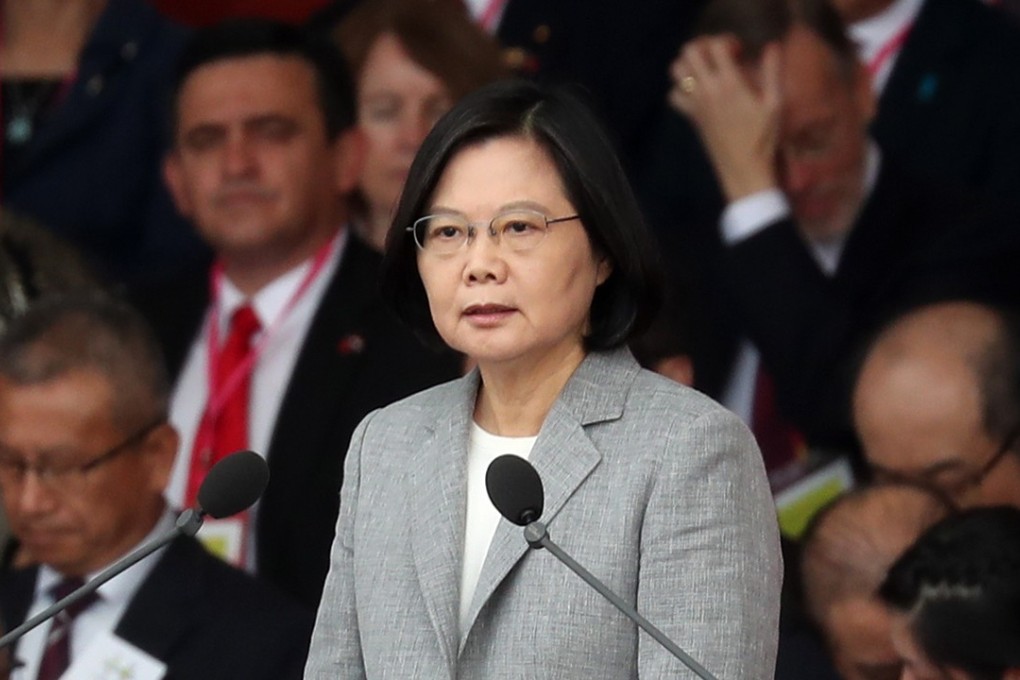‘I will make Taiwan indispensable’ says President Tsai Ing-wen in national day address
Self-ruled island will seek support from the US and other countries to become ‘irreplaceable’ to the world

Taiwanese President Tsai Ing-wen has vowed to turn the self-ruled island into an indispensable member of the world as she blamed mainland China for being a “source of conflict” in a scathing national day address.
Echoing US Vice-President Mike Pence’s harsh criticism of Beijing last week, the island’s leader lambasted the mainland as the cause of cross-strait tension and conflicts in the region, at a rally which was broadcast live to mark the 107th birthday of the Republic of China, Taiwan’s official title.
“For some time now, China’s unilateral diplomatic offensive and military coercion have not only harmed cross-strait relations. They have also seriously challenged the status quo of peace and stability in the Taiwan Strait,” she said.
Tsai said Taiwan could cope with Beijing’s challenges by seeking further support from the United States, Japan, Europe and other like-minded countries, and strengthening its strategic significance so that other nations could rally behind it.
“The best way to defend Taiwan is to make it indispensable and irreplaceable to the world,” she said.